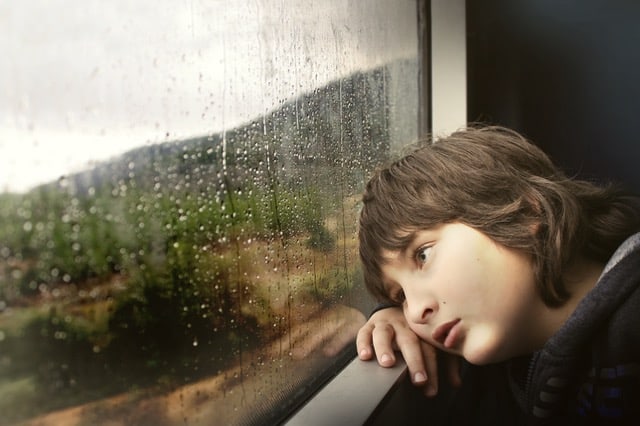
As despicable as the act is, bullying is a reality. Teenagers are bullied every day in their schools and not all of them report the issue. It is your responsibility to protect your kids. Even if your teenagers don’t speak up and talk to you about the issue they are facing, there are some clear bullying signs that you should be on the lookout for.
Let’s take a look at them briefly.
● Reluctance to go to School in the Morning
Since school is the hotspot for social bullying a kid’s hesitance to get up in the morning and go to school could flag that something is out of order. With young kids, watch for repeating excuses and reasons to remain at home, or a call from the school nurse to pick your kid up early.
With teenagers and adolescents, contact their teachers at regular intervals since teens are very likely to simply skip classes. Monitor your teenagers’ behavior. Go through several papers on bullying issues by an expert author so that you would know what to watch out for. Teens, in general, feel more comfortable as the weekend approaches and going back to school on Monday is hard for them.
One of the reasons for this could be the incessant bullying they are facing there.
● Frequent Stomach Aches and Headaches
Stomachaches and headaches are not only physical manifestations of anxiety, depression, and stress, they are also very easy to fake. If your child keeps complaining of being sick and unwell to skip school or other social activities and stay home, it is a sign of bullying.
Ensure that you keep the verbal communication channels between you and your teenagers open so that they will trust you without hesitation.
This infographic was created by Kids Car Donations, car donation Austin TX
● Change in Friendship Circle
If your child stops hanging out with some of their friends, and are reluctant to go out with them, it can be a signal that someone in their group is bullying them. This is very common amongst teenage girls, particularly.
It is hard for teenagers to recognize this kind of bullying because they think of it as their fellows pulling their legs, teasing them, etc. Ensure that you keep an eye out and see what your teenagers fail to see out of love and loyalty to their class fellows.
● Trouble Sleeping
When we are anxious or nervous about some work assignment in the morning, we have difficulty getting enough sleep. If your child looks worn out and tired in the morning, this can be a physical sign that they had difficulty falling asleep at night.
Exhaustion can manifest itself in several other ways as well. Inability to focus, lack of hygiene, etc. can also be indicators of bullying.
● Emotional Reactions
If your child has an intense emotional reaction when you talk about school, social events, friends, etc., it could be an indicator that they are anxious and nervous about being bullied at these events.
Ensure that they know you are their safe space, and they can come to you with any problems and issues they are facing. Moreover, if your child is withdrawn and not as talkative as they usually are, there can be an issue.
If your child went straight to their room after school or is acting up while interacting with the family, it could be an indication of bullying.
● Electronic Devices
There are various forms of bullying. If your child is facing cyberbullying and is receiving harmful online messages, you will notice that they either become obsessed with electronic gadgets or withdraw from them completely.
If you try and limit their usage, they will become agitated. Teenagers are reluctant to communicate with adults about cyberbullying since they think that this will result in their devices being taken away from them.
Show the teenagers that you will not take their freedom and rights away, but will instead stop the bully from causing any harm and hurt. If you say this, they will be more forthcoming about the verbal bullying and will start to use their words to tell you what happened.
● Bruises & Torn Clothes
Torn clothes, scrapes, cuts, bruises, missing personal items, etc. are trademark indicators of playground bullying. When parents ask questions about these things, teens tend to be reluctant to answer them.
Make sure that you are asking open-ended questions instead of trying to zone in on a single thing. Let your teenagers communicate, listen to them, and encourage them to tell you everything that happened on their own.
If your child is new on campus, you have to take special care, because they are susceptible to bullying
Final Word
A parent should know when someone is sending hurtful messages to their children on social media or is bullying them in school. Parents need to find out who the bullies are and then call them out.
Encourage open communication between you and your children, and make sure you know what is happening in your kids’ lives. Kids hesitate talking about the physical bullying they face and experience so you should keep an eye on the tell-tale signs and indicators of bullying.
We have mentioned a few of the independently selected indicators above, and there are several more. Avoid being harsh with them. No one knows your child better than you. If you spot a change in their usual behavior, sit them down, and have a friendly discussion with them so that you can get to the root of the issue.
Get them to see a therapist, if there is a risk of mental health problems.
- Why Do People Host Using Vrbo Instead of Airbnb? - October 19, 2025
- 75 Easy Elf on the Shelf Ideas (quick last minute tips) - September 25, 2025
- Why Would a Girl Tell You She Broke Up With Her Boyfriend? - September 19, 2025
